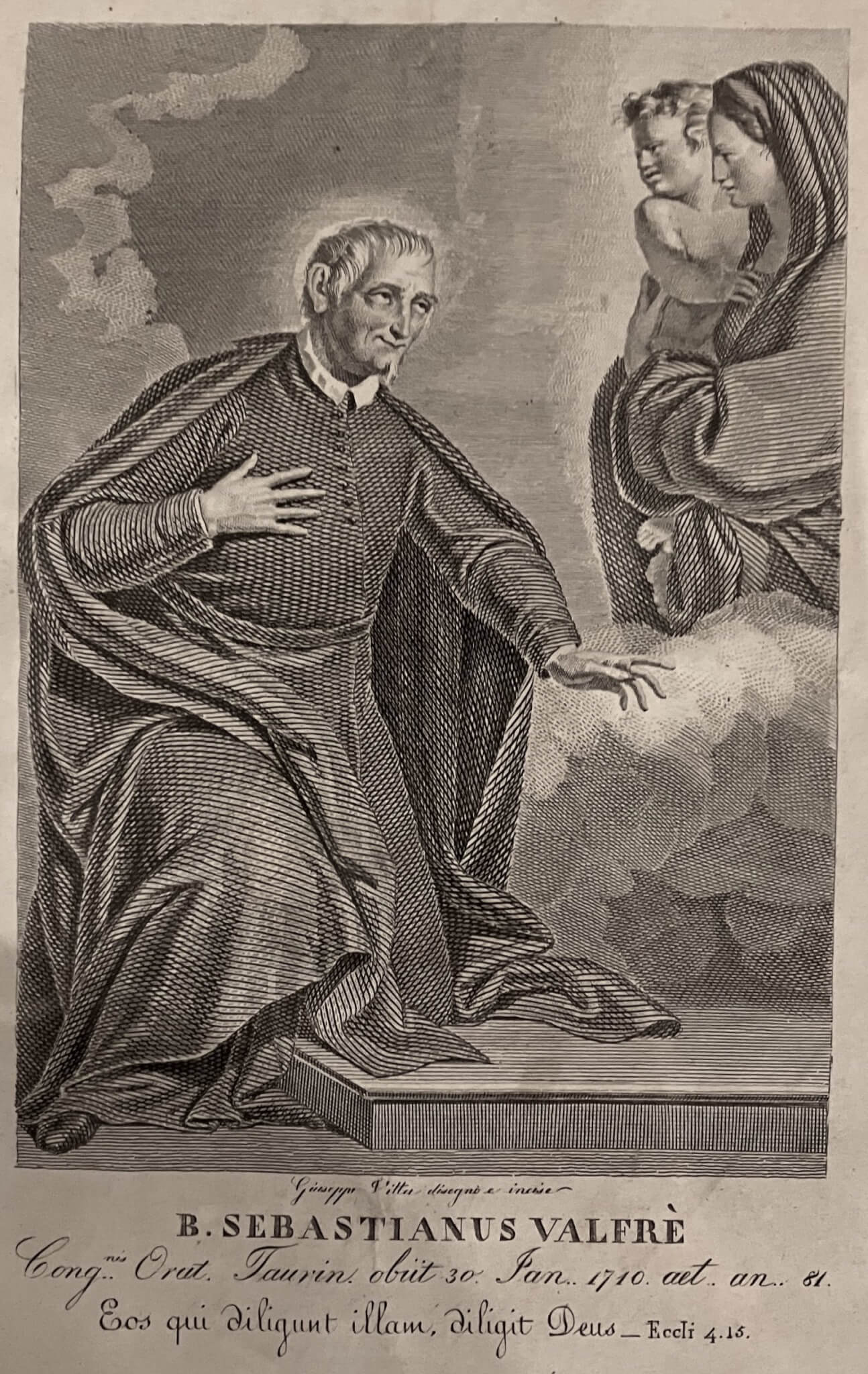Respice finem

For many of us, obedience is not, perhaps, the most attractive virtue. Yet, it was the overriding principle of priestly life for Blessed Sebastian Valfrè, whose feast we kept yesterday. Since joining the Turin Oratory in 1651, at the age of 22, his life was marked by a strict obedience to his superiors and those in authority in the Congregation. Saint Philip insisted that, unlike for members of religious Orders or the Armed Forces, obedience for Oratorians is wholly voluntary, adding that if one wished to be obeyed, it was necessary to avoid giving too many orders. He left us few rules but insisted that those rules be followed and that the Fathers and Brothers obey the office holders in the Congregation without fuss. Blessed Sebastian took this very much to heart, deciding early on to obey without choosing what he would obey. He followed this principle to the letter, telling his novices that ‘he who walks by obedience goes safely to Heaven.’
Possibly the most striking example of Blessed Sebastian’s obedience is the incident of his proposed visit to Rome. This had been a long-cherished desire of his, to see the city in which Saint Philip had lived and become a saint. Once he had boarded the ship, he was handed a letter from the Provost — formerly a novice of his — which read ‘Fr Valfrè is to return home immediately.’ Without so much as a sigh, he said to his companion, ‘the journey to Rome is at an end, let us return home.’ It is hard for us to understand why or how Fr Ormea did such a thing, which seems both unkind and unjust, to his fellow priest. Yet, Blessed Sebastian’s characteristic response to the summons to return is a real lesson for us in humility and obedience. How easy it would have been for him, having opened the letter, to have affected ignorance of its contents. Instead, he chose simply to obey with a striking calmness in accepting the situation.
In his journey to humility, Blessed Sebastian obeyed all in the community: he would call the Porter’s bell the voice of God and drop everything when it called him, echoing Saint Philip who would leave off praying at the call of charity, saying, ‘we must leave Christ for Christ’. If the doctor gave him some treatment, he followed it rather than doing what he thought best. He ate the food that was put before him, without complaint.
None of this was easy. Nevertheless, Blessed Sebastian understood prompt obedience as a means of mortifying the razionale, which Saint Philip called the best way to holiness. ‘Obedience,’ said Blessed Sebastian, ‘is the chart by which the navigator can steer to sanctity. If the chart is correct, all will be well; but if it be faulty, woe to the poor navigator.’ Hence, he chose to live in perfect obedience, at least such as might be humanly possible. Giving up his own will and desires and submitting to those in legitimate authority over him cannot have been easy. But, ultimately, his will was to do the will of God. For this purpose he adopted the attitude Respice finem: look to the end for which we strive. For him, as for all of us, that is holiness and union with God.

